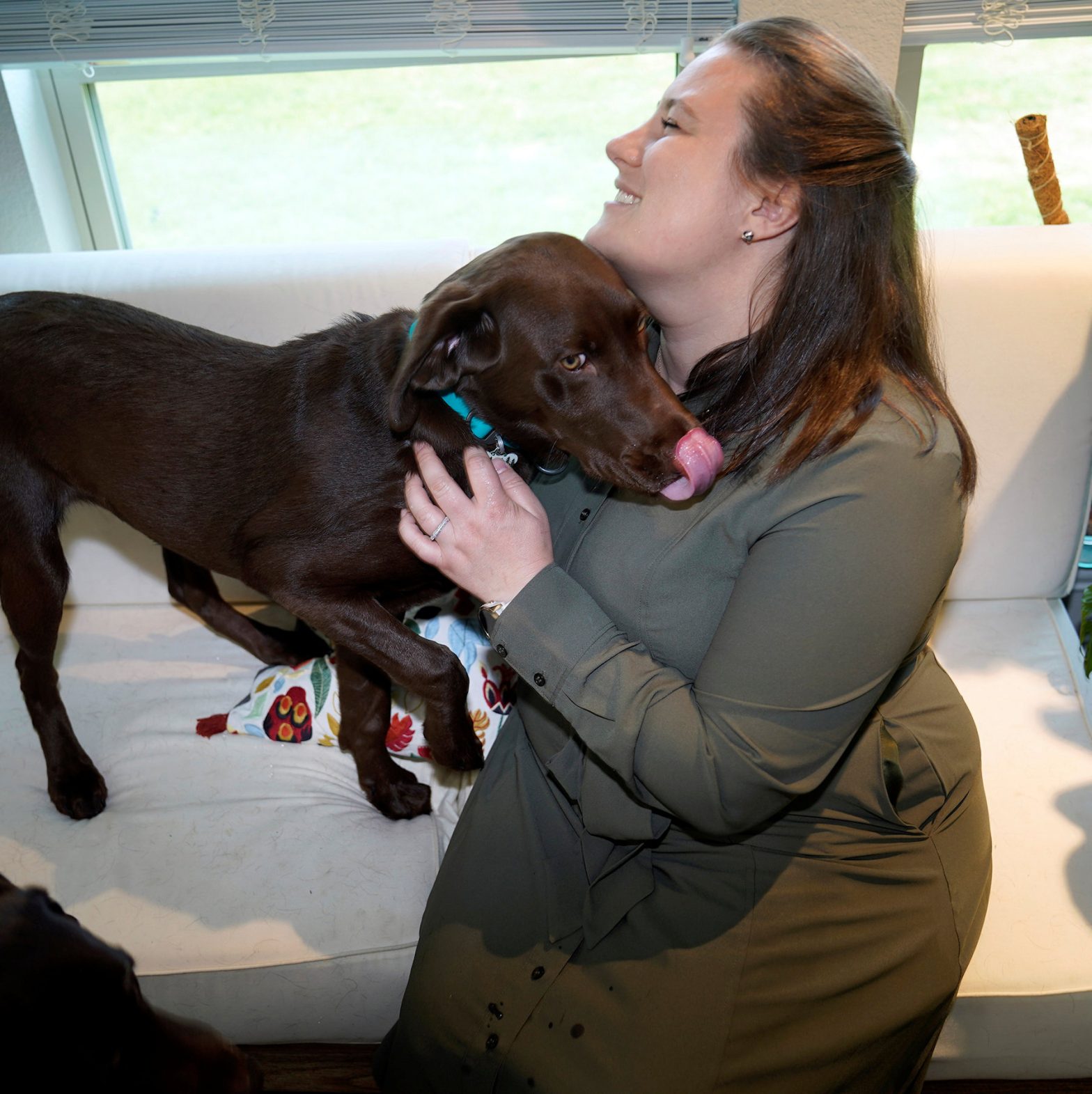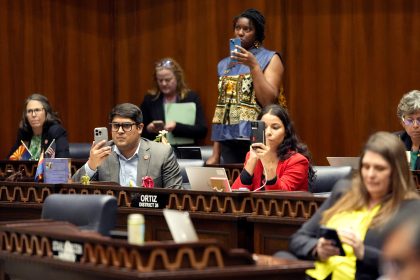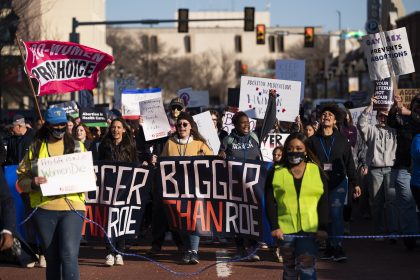More Women Sue Texas, Asking Court to Put Emergency Block on State’s Abortion Law

WASHINGTON (AP) — One woman had to carry her baby, missing much of her skull, for months knowing she’d bury her daughter soon after she was born. Another started mirroring the life-threatening symptoms that her baby was displaying while in the womb. An OB-GYN found herself secretly traveling out of state to abort her wanted pregnancy, marred by the diagnosis of a fatal fetal anomaly.
All of the women were told they could not end their pregnancies in Texas, a state that has enacted some of the nation’s most restrictive abortion laws.
Now, they’re asking a Texas court to put an emergency hold on some abortion restrictions, joining a lawsuit launched earlier this year by five other women who were denied abortions in the state, despite pregnancies they say endangered their health or lives.
More than a dozen Texas women in total have joined the Center for Reproductive Rights’ lawsuit against the state’s law, which prohibits abortions unless a mother’s life is at risk — an exception that is not clearly defined. Texas doctors who perform abortions risk life in prison and fines of up to $100,000, leaving many women with providers who are unwilling to even discuss terminating a pregnancy.
“Our hope is that it will allow physicians at least a little more comfort when it comes to patients in obstetrical emergencies who really need an abortion where it’s going to effect their health, fertility or life going forward,” Molly Duane, the lead attorney on the case, told The Associated Press. “Almost all of the plaintiffs in the lawsuit tell similar stories about their doctors saying, if not for this law, I’d give you an abortion right now.”
The lawsuit serves as a nationwide model for abortion rights advocates to challenge strict new abortion laws states that have rolled out since the Supreme Court overturned Roe v. Wade last year. Sixteen states, including Texas, do not allow abortions when a fatal fetal anomaly is detected while six do not allow exceptions for the mother’s health, according to an analysis by KFF, a health research organization.
Duane said the Center for Reproductive Rights is looking at filing similar lawsuits in other states, noting that they’ve heard from women across the country. Roughly 25 Texas women have contacted the organization about their own experiences since the initial lawsuit was filed in March.
The women who joined the lawsuit describe being elated about finding out they were pregnant before the experience turned catastrophic.
Jessica Bernardo and her husband spent years trying to conceive, even consulting fertility doctors, before finally become pregnant with a daughter, Emma, last July.
Almost immediately, Bernardo was coughing so hard and often she would sometimes throw up. Fourteen weeks into the pregnancy, test results revealed her baby likely had Down Syndrome, so she consulted a specialist who gave her devastating news: Emma’s heart was underdeveloped and she had a rare, deadly disorder called fetal anasarca, which causes fluid to build up in the body.
“He handed me a tissue box,” recalled Bernardo, who lives in Frisco, Texas. “I thought maybe the worst thing he was going to tell us was that she’s going to have Down Syndrome. Instead, he said, ‘I can tell you right away…she wouldn’t make it.’”
The doctor warned her to watch out for high blood pressure and coughing, symptoms of Mirror syndrome, another rare condition where a mother “mirrors” the same problems the fetus is experiencing.
With Bernardo’s blood pressure numbers climbing, her OB-GYN conferred with the hospital’s ethics board to see if she could end the pregnancy but was advised Bernardo wasn’t sick enough. Bernardo spent $7,000 traveling to Seattle for an abortion a week later.
Even if Emma made it through the pregnancy, doctors would have immediately needed to drain excess fluids from her body, only for her to survive a few hours or days, Bernardo said.
“Reading about everything they would do sounded like complete torture to a newborn that would not survive,” she said. “Had I not received an abortion, my life would have very likely been on the line.”
Other women facing similar situations have not had the financial resources to travel outside of the state.
Samantha Casiano, a 29-year-old living in eastern Texas, found out halfway through her pregnancy last year that her daughter, Halo, had a rare diagnosis of anencephaly, where much of the skull and brain is missing. Her doctor told her she would have to continue with the pregnancy because of Texas law, even though her baby would not survive.
With five children, including a goddaughter, at home she quickly realized she could not afford an out-of-state trip for an abortion. The next next few months of her pregnancy were spent trying to raise money for her daughter’s impending funeral, soliciting donations through online websites and launching fundraisers to sell Mexican soup. Halo was born in April, living for only four hours.
“I was so full of heartbreak and sadness, all at the same time,” Casiano said.
Women in the lawsuit say they could not openly discuss abortion or labor induction with their doctors, instead asking their doctors discreetly if they should travel outside of the state.
Dr. Austin Dennard, an OB-GYN in Dallas, never talked about her own abortion with her doctors after they discovered anencephaly on the baby’s ultrasound during her third pregnancy last year. She worried her out-of-state trip to end the pregnancy could jeopardize her medical license or invite harassment against her and her husband, also an OB-GYN. Dennard was inspired to go public with her case when one of her own patients joined the original lawsuit filed in March after traveling to Colorado to abort a twin fetus diagnosed with a life-threatening genetic disorder.
“There was an enormous amount of fear that I experienced afterward,” Dennard said. “It’s an additional way of feeling silenced. You feel you have to do it in secret and not tell anyone about it.”
Dennard is expecting another child later this year.
___
Associated Press writer Paul Weber in Austin, Texas, contributed to this report.

























